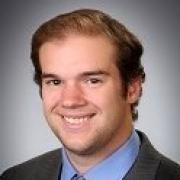Student Hightlights Policy Conference in Music City Council of State Government National Conference
Matt Arant is a second-year MPA student. For the past year, he has worked with the Council of State Governments as a Graduate Fellow in Education Policy with a emphasis on Postsecondary Education.
As part of my last week as a graduate fellow in education policy at The Council of State Governments, I was able to attend the organization’s National Conference in Nashville. A four-day event drawing nearly 800 state legislators and various members of governmental agencies and the private sector, the conference consisted of numerous meetings on a wide variety of policy-specific issues.
I helped with a couple of sessions pertaining to education while in Nashville, starting with a policy academy about innovative delivery models in postsecondary education on Thursday. The structure and content of this particular session was very similar to what I had helped prepare for our regional meetings, held in Savannah, GA, Vail, CO, and Wilmington, DE over the summer. We opened the session with a keynote speaker who offered a national perspective on workforce alignment with postsecondary education and the creation of a “pathways to prosperity” network. Following the keynote address, we had a three-person panel share more of a state-specific perspective (basically which states are doing what) in terms of offering credit for prior learning and effectively bringing former students back into education to finish their degree or credential.
The second half of the session addressed this issue largely from the perspective of the private sector, with our lunchtime address coming from the Vice President of Human Resources at International Paper and representatives from Honda and UPS serving on our final panel of the day. The overarching theme of this portion of the session was how to draw high-caliber workers to companies, essentially narrowing that “skills gap,” a phrase policymakers love to throw around.
We had between 60 and 65 attendees for the session, a good amount considering the conference did not officially start until the next day. I helped coordinate the entire session because of a recent staff change within CSG, reaching out to legislators across the country and finding suitable speakers. Since I had first-hand experience with helping set up the policy academies at our regional meetings, coordinating this event was not too arduous.
I was only able to stay for the sessions on Thursday and Friday, but CSG does a very nice job in providing a wide variety of content with the hopes of strengthening existing relationships and building new ones with their members. It was a great way to end my time as a graduate fellow.

